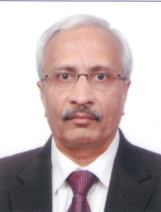The monsoon season brings relief from the scorching summer heat but also creates favourable conditions for seasonal influenza to thrive. This season sees an increase in flu infections, as the humidity and temperature fluctuations promote the transmission of flu viruses.
The erratic nature of this year’s monsoon can amplify the spread of flu infections. In regions facing drought-like conditions, air pollution rises, which can weaken the immune defenses of children, making them more susceptible to flu infections.Areas prone to waterlogging see an increased growth of mold and fungi, impacting the lung health of children and increasing the risk of flu. Crowding in homes and other indoor spaces due to heavy rainfall and floods can also lead to the rapid spread of infection and can even large-scale flu outbreaks.
In children, flu can lead to serious complications such as pneumonia and exacerbate pre-existing conditions such as asthma. The Indian Academy of Paediatrics (IAP) recommends that children between the ages of 6 months and 5 years receive a flu vaccination every year after completion of primary influenza immunisation to prevent complications.Vaccination can also help reduce the severity of illness if flu is contracted.
Dr Vinod Gandhi, Director, Colours Mother & child care hospital, Nagpur discusses the importance of proactive healthcare measures during the Monsoons, saying, “With a developing immune system, children under the age of 5 are more susceptible to flu. To ensure they are protected this monsoon season, parents should get them vaccinated against flu. Children under the age of 5 should receive 4in1 flu vaccination every year. I would like to reassure parents that this is a safe and effective measure of protection against flu, and they should consult their doctors for further advice”.
There are four types of flu viruses that mutate every year,and the immunity provided by previous vaccinations is insufficient to protect against new strains.Therefore, the flu vaccination is re-formulated every year according to the World Health Organisation (WHO)’s guidelines to protect against the current circulating strains of flu viruses. The WHO also recommends certain hygiene practices along with annual vaccination such as frequent handwashing and avoiding crowded places during peak flu season.
Parents are advised to consult their paediatricians about flu vaccination for their children. This proactive approach not only safeguards their children’s health but also contributes to the community’s immunity, protecting those who are unable to receive vaccination themselves.
👉 Click here to read the latest Gujarat news on TheLiveAhmedabad.com




